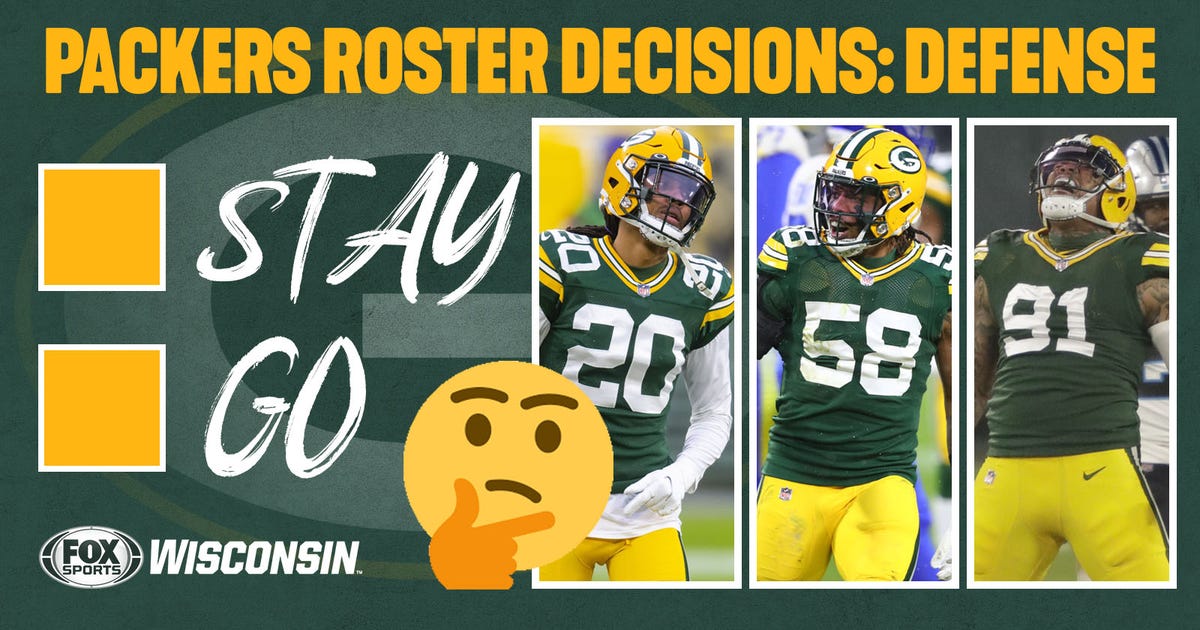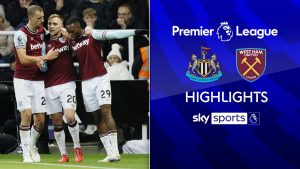Stay or go: Green Bay Packers 2021 defense


No NFL roster stays the same from one year to the next and the Green Bay Packers are no exception.
Who might be returning to the 2021 edition of the team and which players will Packers fans bid adieu?
We take a look at every player on the roster and their contract status – i.e. how much it would cost to cut them, if they are a free agent and what kind (unrestricted, restricted, exclusive rights or street) or if the player is simply signed to a futures deal.
Who do you think should stay or go on the defensive side of the ball? (Click here for offense) Well, at the end of the article you can cast your vote for each player’s fate (presented in the order they are listed below).
All contract and salary information courtesy OverTheCap.com.
DEFENSIVE LINE
Montravius Adams: A third-round pick in 2017, Adams played in only eight games in 2020 due to injuries. He topped 25% of the defensive snaps in those contests just three times, with a high of 46%. In four years, he had 44 tackles and 1.5 sacks, the latter of which came in 2018. Salary situation: Unrestricted free agent. Our take: Time to move on. Go
Kenny Clark: Despite being injured in the opener and missing three games, Clark still played in 61.22% of the defensive snaps in 2020. He’s become a force in the middle, with 18.5 sacks over the past four seasons, not counting the playoffs (he had 2.5 this year). Salary situation: Clark inked a big contract extension and would account for $20 million in dead money and a nearly $13 million cap hit. If designated a post-June 1 cut he’d incur $5 million of dead money with just over $2 million in cap savings. Our take: Don’t worry about post-June 1. Stay
Damon Harrison: It sounded like a good idea to bring in the run-stuffing tackle for the stretch run and playoffs on a defense which had at times struggled against the run. In three games, two postseason, Harrison had 32 snaps and one assisted tackle. Salary situation: Unrestricted free agent. Our take: Thanks for the memory. Go
Kingsley Keke: The 2019 fifth-round pick saw his defensive snaps go from 94 as a rookie to 414 in 2020. He also started nine games this season, playing in 15 overall, finishing with 21 tackles, eight QB hits, three tackles for loss and four sacks. Salary situation: Minimal dead money — $156,632 – with a $771,684 cap savings if cut. Our take: Looks like Green Bay has itself a nice late-round find. Stay
Tyler Lancaster: Playing in one-third of the defensive snaps mainly as a run defender, Lancaster had 23 stops with no TFL, QBH or QB pressures. It should be noted he has a very unsung, blue-collar job. Salary situation: Restricted free agent. Our take: As an RFA, he’d be easy to keep as a rotational player and lunch pail kind of guy. It also might be time to move on. Go
Dean Lowry: A fourth-round pick in 2016, Lowry has been durable and steady over the years – he’s missed only one game and that was as a rookie. He appeared in 60.87% of the defensive snaps in 2020 and had 36 tackles, three sacks, two TFL, four QB hits and 10 QB pressures. Salary situation: If cut or traded, the Packers would incur $3 million in dead money but have a $3.3 million cap savings. A post-June 1 cut would save the Packers $4.8 million with $1.5 million in dead money. Our take: Green Bay has some work to get under the cap by the start of the league year. He’d be a tough cut. Stay
Willington Previlon: The rookie defensive tackle from Rutgers spent the season on the practice squad, elevated for one game, although he didn’t get on the field. Salary situation: Signed to a reserve/future contract. Our take: Bring him into camp and see if he can stick. Stay
Brian Price: The veteran was signed to the practice squad and elevated to the active roster for the final two regular-season games and both playoff contests. He accumulated 17 snaps on defense and 13 on special teams. He did not record a tackle. Salary situation: Unrestricted free agent. Our take: Was a nice late-season insurance policy and extra body for the line. Go
Anthony Rush: Rush was claimed off waivers from Chicago on Nov. 30. He never played for the Bears but appeared in four games with Seattle in 2020 and nine with Philadelphia in 2019. He was used for all of one play by the Packers in Week 15 vs. Carolina. He’s a big (listed at 6-foot-5, 350 pounds) run stuffer. Salary situation: Signed to a reserve/future contract. Our take: Maybe he can become what Green Bay wanted out of Harrison. Worth a camp look. Stay
Delontae Scott: A smaller lineman at 6-5, 246, Scott spent the year on the practice squad after signing as an undrafted free agent out of SMU. Salary situation: Signed to a reserve/future contract. Our take: He’s easily the smallest, in terms of weight, defensive lineman on the roster. Doesn’t seem to be a fit for the 3-4, but Green Bay kept him around all year. No real harm in keeping him around but that size is an issue. Go
Billy Winn: One of the better stories of the year as Winn hadn’t played in the NFL since 2016 due to a variety of injuries. Winn played in 41 defensive snaps in six regular-season games and had six tackles. He did not appear in either playoff game. Salary situation: Unrestricted free agent. Our take: It was a nice story, but every story has an ending. Go
LINEBACKER
Khrys Barnes: An undrafted free-agent rookie out of UCLA, Barnes played in 13 games with 10 starts (including Week 1), recording 80 tackles, five TFL a sack and a forced fumble. He had three double-digit tackles games, including a season-high 14 in the Week 17 win over Chicago and 10 – despite a club on his hand – in the playoff victory over the Rams. Salary situation: Barnes could be cut without taking on any dead money. He’d represent a $780,000 cap savings. Our take: Playing with a club and registering 10 tackles sealed his fate in our heart. Stay
More Packers coverage from FOX Sports Wisconsin
James Burgess: Burgess, who played for Cleveland from 2017-18 and the New York Jets in 2019, was signed off Atlanta’s practice squad in late October. He played in four games in Weeks 8-11, all on special teams, before being placed on injured reserve with a hamstring injury. Salary situation: Unrestricted free agent. Our take: Unless he’s considered by the team to be a special-teams ace … Go
Oren Burks: A third-round pick in 2018, Burks has never lived up to his draft status. All four of his career starts came as a rookie. In 2020 he appeared in all 16 games for the first time in his career but had just 96 defensive snaps with just 16 from Weeks 10-17 and the two playoff games (in which he played only on special teams). He nevertheless recorded 21 tackles, one TFL and two forced fumbles. Salary situation: Cutting Burks would cost the Packers just over $205,000 in dead money with a $945,000 cap savings. Our take: He might not ever be a starter but good special teams players can be hard to find, especially ones under contract, which Burks is for one more year. Stay
Jonathan Garvin: A seventh-round pick, Garvin ended up playing in nine games (none in the playoffs), compiling 85 defensive snaps. He had five tackles. Salary situation: On a minimal seventh-round contract, he’d cost just under $60,000 in dead money with just over $740,000 in cap savings. Our take: He’s a project who got some game experience. Let’s see how he progresses. Stay
Rashan Gary: The No. 12 overall pick in the 2019 draft broke out a bit in his second season. Playing in 15 games with four starts, and nearly half the defensive snaps, Gary had 35 tackles, five sacks, five TFL and 11 QBH. Salary situation: If cut or traded, Gary would cost Green Bay slightly under $9.4 million in dead money with a cap charge of $5.05 million. Even a post-June 1 move would incur a cap charge of $2.66 million and $6.99 million in dead money. Our take: Let’s see if he can make another big step in Year 3. Stay
Tipa Galeai: An undrafted free agent out of Utah State, Galeai spent the season in the practice squad, although he did play nine defensive snaps in the season opener. Salary situation: Signed to a reserve/future contract. Our take: Stuck around all year although never got called up after the opener. Stay
De’Jon Harris: Another undrafted player who spent the year on the practice squad, Harris, who went to Arkansas, was elevated for two games – Week 4 vs. Atlanta and Week 12 against Chicago – and played only on special teams, getting 25 snaps, Salary situation: Signed to a reserve/future contract. Our take: Every team needs guys with cheap contracts who can play special teams. Stay
Christian Kirksey: In his first season with Green Bay, Kirksey started 11 games and notched 77 tackles with four passes defensed, two sacks and two TFL. Salary situation: If cut, incurs $2 million in dead money with a tad over $5.6 million in cap savings. A post-June 1 move doesn’t change the numbers. Our take: Is Mike Pettine back? Go
Kamal Martin: There was a lot of preseason hype around the fifth-round rookie, but an injury delayed his NFL career until Week 7. He started six of his first seven games, however ended up as a sub in the final five games (including playoffs), getting more than 14 defensive snaps just once in that span. He finished with 24 tackles, three TFL and a sack. Salary situation: Just $203,295 of dead money and $644,470 cap savings if cut or dealt. Our take: Martin had injury issues in college at Minnesota as well but it’s worth seeing if he lives up to the hype. Stay
Randy Ramsey: An undrafted free agent in 2019 who spent last year on Green Bay’s practice squad, Ramsey played in 12 games this year, mainly on special teams (75 defense snaps, 204 ST snaps). He had 11 tackles. Salary situation: Exclusive-rights free agent. Our take: Not much risk keeping him around. Stay
Preston Smith: In his second year with the Packers, Smith saw his numbers take a dip from 2019. Playing in all 16 regular-season games, Smith had 42 tackles, seven TFL, four sacks, three passes defensed and 11 QB hits – all lower than his 2019 numbers. He had six tackles, two passes defensed and two QB hits in Green Bay’s two playoff games. Salary situation: If cut or traded there’s $8 million of dead money and $8 million in cap savings. Those numbers change to $4M and $12M if he’s a post-June 1 cut (however, keep in mind the Packers will have to shed roughly $25M-$28M of salary before the start of the league year in March). Our take: 2019 was great; 2020 not as much. Go
Za’Darius Smith: The other Smith continued to produce at an elite level in 2020, albeit a little off from his first year with the Packers. Starting all 16 games, he had 52 tackles, 12 TFL, 12.5 sacks, four forced fumbles and 23 QB hits (all but the forced fumbles lower than his 2019 numbers). Salary situation: Cutting or trading Smith would incur Green Bay $10 million in dead money but with a $12 million cap savings. A post-June 1 move makes it $5M in dead money and $17M in cap savings. Our take: Yes, the Packers need to shed salary. No, it shouldn’t be here. Of course, it means there will be other difficult decisions. Stay
Ty Summers: The 2019 seventh-round pick played in all 16 games and even started in Week 4 against Atlanta, recording seven tackles. His time on defense dwindled after Week 9, getting just six snaps (three in two games) before playing 28 snaps in the NFC championship. Summers did, however, play on most special-team units. He finished with 39 tackles. Salary situation: Cutting him would give the Packers just $48,952 in dead money with a cap savings of $825,524. Our take: Another one of those guys teams just need on a roster – someone who can step in on defense while being a core player on special teams. Stay
Ray Wilborn: An undrafted free agent out of Ball State, Wilborn was signed by Green Bay after the season. He had stints with Atlanta and Pittsburgh earlier in 2020. Salary situation: Signed to a reserve/future contract. Our take: Who knows? Green Bay obviously wants to give him a look even though he wasn’t in their system. That’s what OTAs, minicamp (if there are those) and training camp are for. Stay
SECONDARY
Jaire Alexander: Alexander has emerged as one of the best cornerbacks in the NFL. He had 51 tackles, 13 passes defended and one interception in the regular season then added a pair of picks and three PD against Tampa Bay in the NFC championship. Salary situation: There would be no cap savings in cutting Alexander. Our take: There’s no discussion here. The big thing to note is Alexander is due to become a free agent after next season. Stay
Adrian Amos: Amos has proven to be a good free-agent signing for the Packers. He started all 16 games again for Green Bay in his second year with the team, finishing with 83 tackles, nine passes defensed, two interceptions and four TFL in 2020. Salary situation: He’d incur $6 million in dead money with $4.3 million in cap savings is cut or trade. Post-June 1 that’d change to $3 million and $7.3 million. Our take: His contract is more conducive to getting out of in the fourth and final year after 2021. Stay
Henry Black: Signed to the active roster in late October, the rookie undrafted free agent out of Baylor played in eight games, mainly on special teams. He had eight tackles and a forced fumble. Salary situation: No dead money and $780,000 in cap savings if cut or traded. Our take: A UDFA who is on a cheap contract and worked his way into the lineup? Worth saving. Stay
Kabion Ento: The former Colorado cornerback has spent two years on Green Bay’s practice squad. He was placed on injured reserve after breaking a foot in training camp. Salary situation: Exclusive-rights free agent. Our take: Injuries happen but three years? Maybe some room need to be cleared for another project. Go
Innis Gaines: A safety out of TCU who went undrafted, Gaines wasn’t with an NFL team in 2020 and was signed by Green Bay after the season. Salary situation: Signed to a reserve/future contract. Our take: Another who knows? See Wilborn above. Stay
Raven Greene: In his third year with Green Bay, Greene played 10 games before landing on IR. The safety who went undrafted out of James Madison appeared in 324 (32%) of regular-season snaps, recording 44 tackles, five passes defensed and a forced fumble. Opposing QBs completed 70.6% of their attempts against him, although with a passer rating of 88.6. Salary situation: Restricted free agent. Our take: Unless he gets an offer from another team, seems like a decent piece to have in the secondary. Stay
Ka’dar Hollman: A sixth-round pick in 2019, Hollman saw limited time at corner but fared well when he played. Playing 108 snaps on defense – all during the regular season, although 77 of those came against San Francisco (26 in Week 9) and Jacksonville (51, Week 10) – opposing QBs had just a 51.8 passer rating and 41.2% completion percentage when throwing against him. Salary situation: $87,474 in dead money with $806,262 in cap savings if cut or traded. Our take: The Packers trusted Hollman enough to play extensive snaps in two games but then he was a healthy scratch in both playoff contests. Probably worth keeping around, but we’ll have to see what management thinks. Maybe the team already tipped its hand. Stay
Josh Jackson: The former second-round pick largely has fallen out of favor. He started 10 games as a rookie, none in 2019 and five (in 12 games played) in 2020 but was a healthy scratch in the playoffs. According to pro-football-reference.com, Jackson allowed just one touchdown against him this year but opposing quarterbacks had a 113.0 passer rating. Salary situation: Incurs $657,473 in dead money with $1,333,104 in cap savings if cut or traded. Our take: Hasn’t worked out. Change of scenery might do him some good. Go
Kevin King: King became something of a scapegoat for some fans, especially after his performance in the NFC championship. Due to injured, he played in just 11 games. After recording 15 passes defensed and five interceptions in 2019, he had just five PD with no picks this year. His 96.2 opponent passer rating was the worst of his three-year career. Salary situation: Unrestricted free agent. Our take: Generally speaking, we don’t think fan angst should dictate moves. But the Packers will have salary-cap issues and we’d expect some other team in a cornerback-hungry league to give King a decent contract. Go
Parry Nickerson: On this third team in three years, Nickerson played two special teams snaps in Week 6 at Tampa Bay, injured his hamstring and was placed on IR, never to return. Salary situation: Restricted free agent. Our take: The cornerback will be 27 in October. Go
Will Redmond: A third-round pick of San Francisco in 2016, Redmond bounced from the 49ers to Kansas City before making his NFL debut in 2018 with Green Bay, where he’s established himself as a special teams player and reserve safety. He played 13 games with one start in 2020, recording 28 tackles with one pass defensed and four QB pressures. According to pro-football-reference, QBs were 15-of-22 passing for 214 yards and a TD (114.6 rating) with Redmond in coverage. Salary situation: Unrestricted free agent. Our take: A core special teamer who provides nice depth. Of course, special teams weren’t very good last year and maybe the Packers should get younger in the secondary as they look for an eventual replacement for Amos. Go
KeiVarae Russell: Russell played for Cincinnati from 2016-18 then bounced from the Chargers to the Giants before being signed to Green Bay’s practice squad. He played in one regular-season game – seven snaps at special teams in Week 10 vs. Jacksonville. Salary situation: Signed to a reserve/future contract. Our take: If you wonder the chances of Russell sticking around, he played in both playoff games on special teams (48% and 54% of snaps). Stay
Stanford Samuels: An undrafted free agent from Florida State, Samuels spent the season on the practice squad and was elevated twice to the active roster – Week 9 at San Francisco (where he played 13 snaps on defense and 10 on special teams) and Week 10 vs. Jacksonville (12 ST snaps). He had three tackles. Salary situation: Signed to a reserve/future contract. Our take: He’s young (22 in February), having left FSU after his junior year, has good size (6-1) and productive at a major Power 5 school. Just the kind of cornerback you try to develop. Stay
Darnell Savage: The second-year safety played 15 games, all starts, recording 75 tackles, four interceptions, 12 passes defensed and three TFL. Opposing QBs had a 67.3 rating when throwing against Savage in coverage. Salary situation: Would be over $7 million in dead money and no cap savings (a nearly $4 million hit). Those numbers change some with a post-June 1 designation, but Green Bay would still lose over $2.6M in the salary cap. Our take: A piece of the puzzle. Stay
Vernon Scott: Seventh-round rookie saw some action on defense (89) snaps but mostly on special teams. Notched 13 tackles, two TFL and a sack. Salary situation: Just $62,766 in dead money if cut or traded with $738,156 in cap savings. Our take: Worth another look. Stay
Chandon Sullivan: The nickel corner saw a of action in 2020, playing in every game with 10 starts while playing in the sixth-most defensive snaps on the team (72.05%, including playoffs). Sullivan had 41 tackles with six passes defensed and a pick. Quarterbacks had a 96.0 passer rating when Sullivan was in coverage. In 2019, in 16 games but in much fewer snaps (32.87%), QBs had a 34.3 rating vs. Sullivan. Salary situation: Restricted free agent. Our take: He is what he is, and that’s not necessarily a bad thing. Stay
Tramon Williams: Williams was signed to the practice squad after being cut by Baltimore and was elevated to the active roster for the NFC championship but did not play. He’ll be 38 in March. Salary situation: Unrestricted free agent. Our take: It was a nice story angle for reporters and fans for a few days. Go
SPECIAL TEAMS
Hunter Bradley: The former seventh-round pick was the Packers’ long snapper for the third consecutive season. Salary situation: Just under $20,000 in dead money with $920,000 in cap savings if cut/traded. Our take: He’s the only long snapper on the roster. Stay
JK Scott: In his third year as Green Bay’s punter, the former fifth-round pick averaged a career-high 45.5 yards per boot (18th in the NFL) with a 37.0 net (third worst). Salary situation: Just under $55,000 in dead money with $920,000 in cap savings if cut/traded. Our take: There seems to be a growing fanbase which wants Scott. No reason to not have a camp competition. Stay
Ryan Winslow: Originally signed by Chicago in 2018 out of Pittsburgh, he played in the Alliance of American Football in 2019 with San Diego before joining Arizona. Had six punts for a 48.5 average in 2019 with the Cardinals. Joined Green Bay’s practice squad in 2020. Salary situation: Signed to a reserve/future contract. Our take: Your competition. Stay









